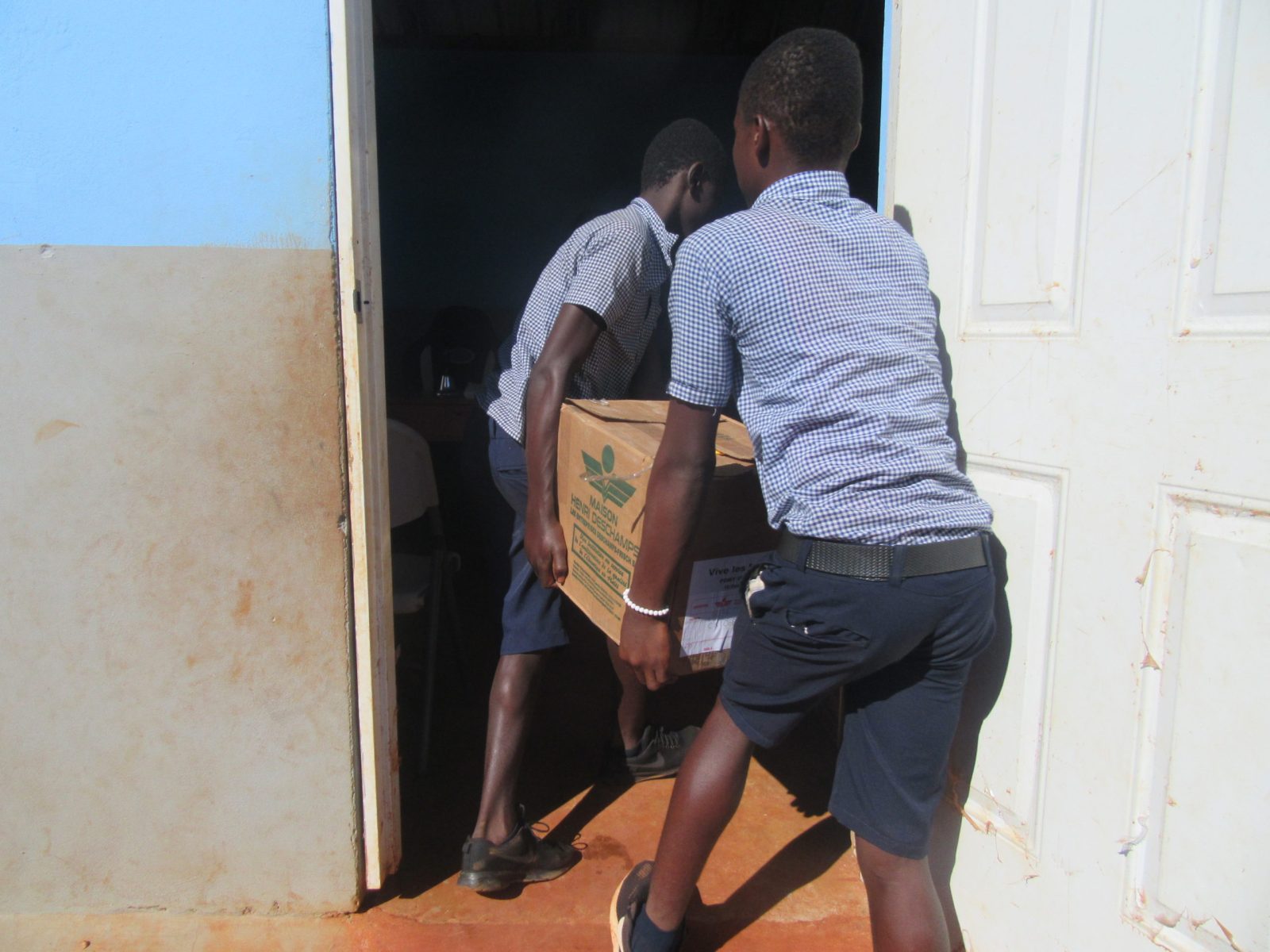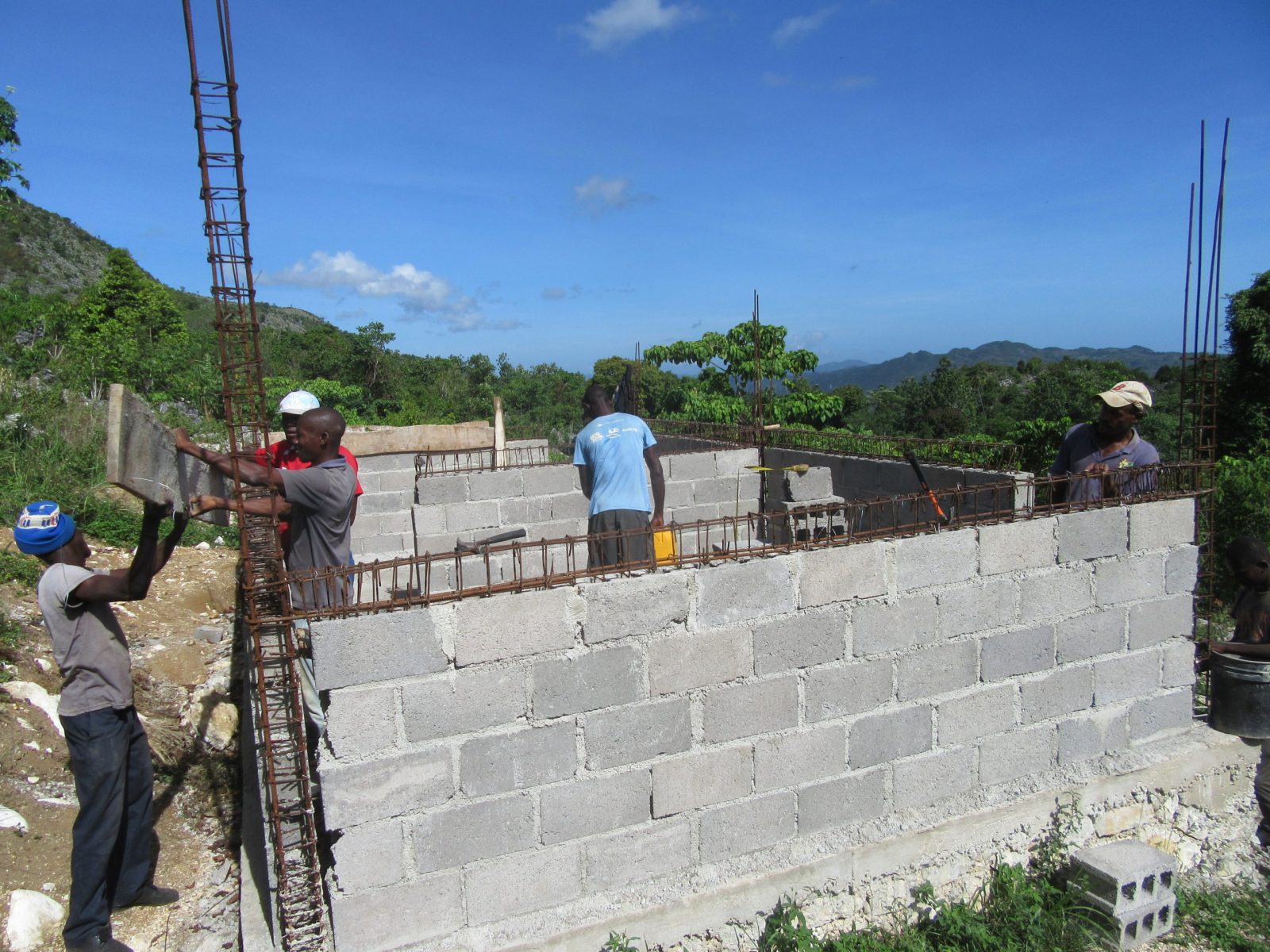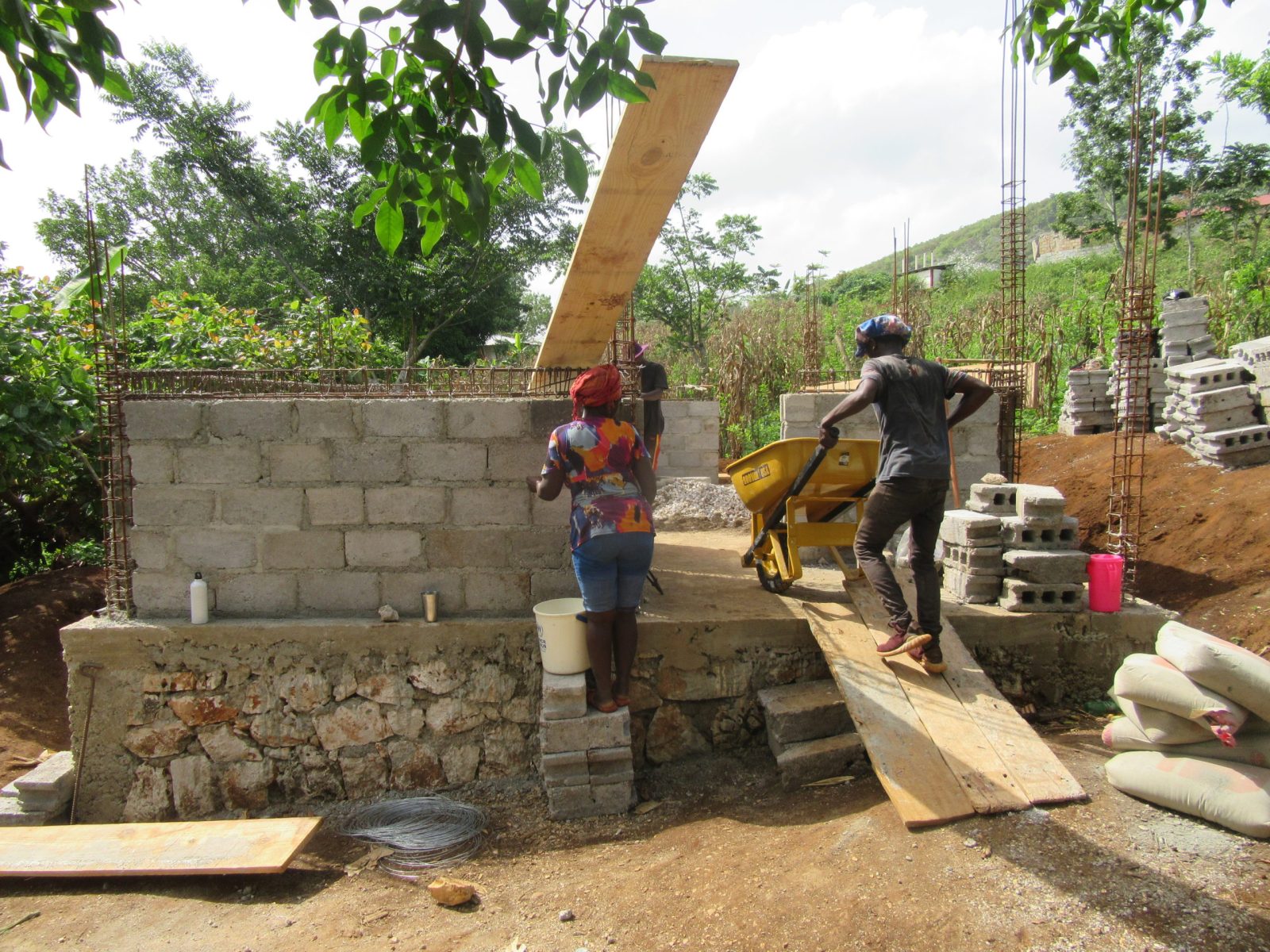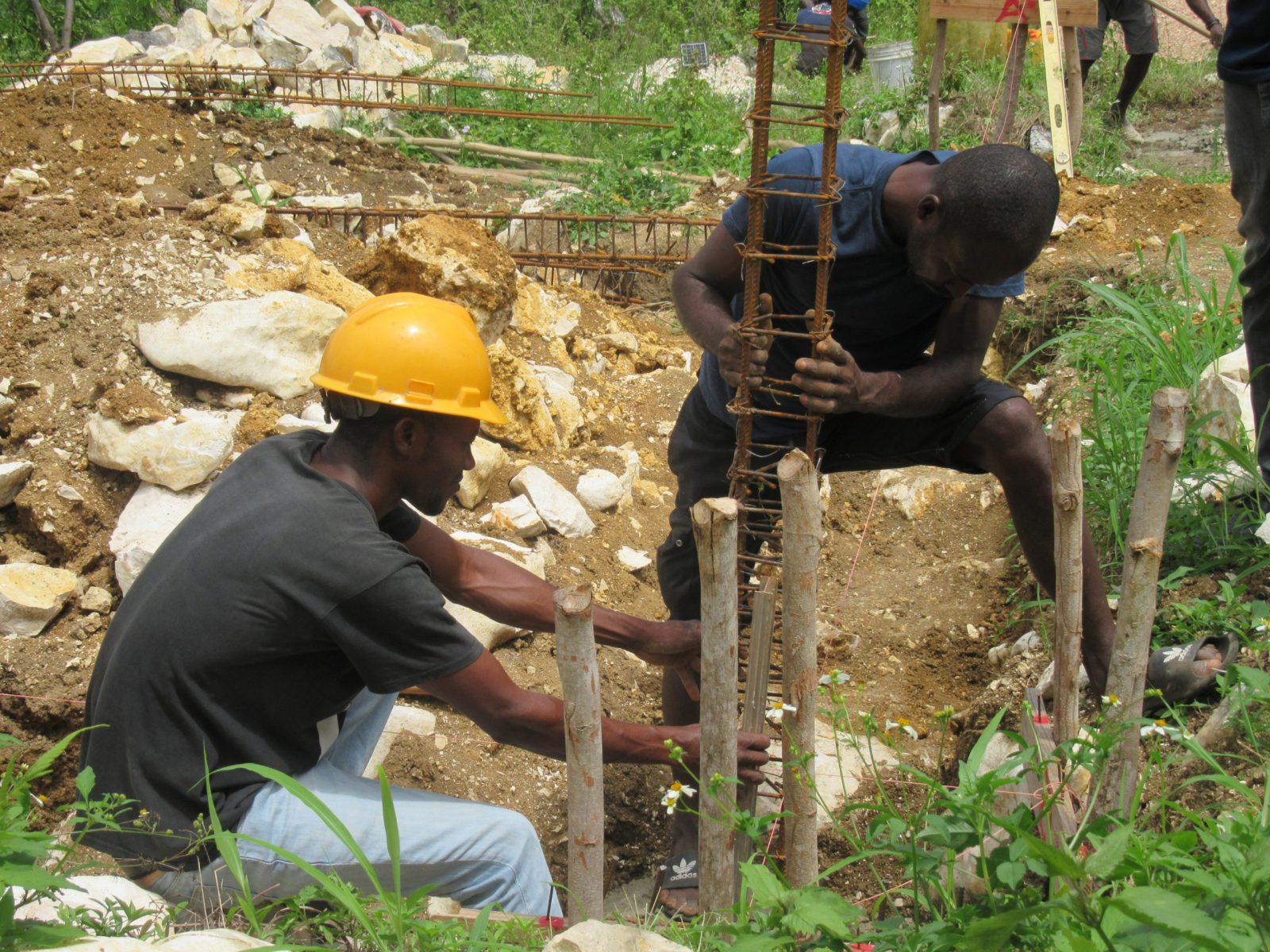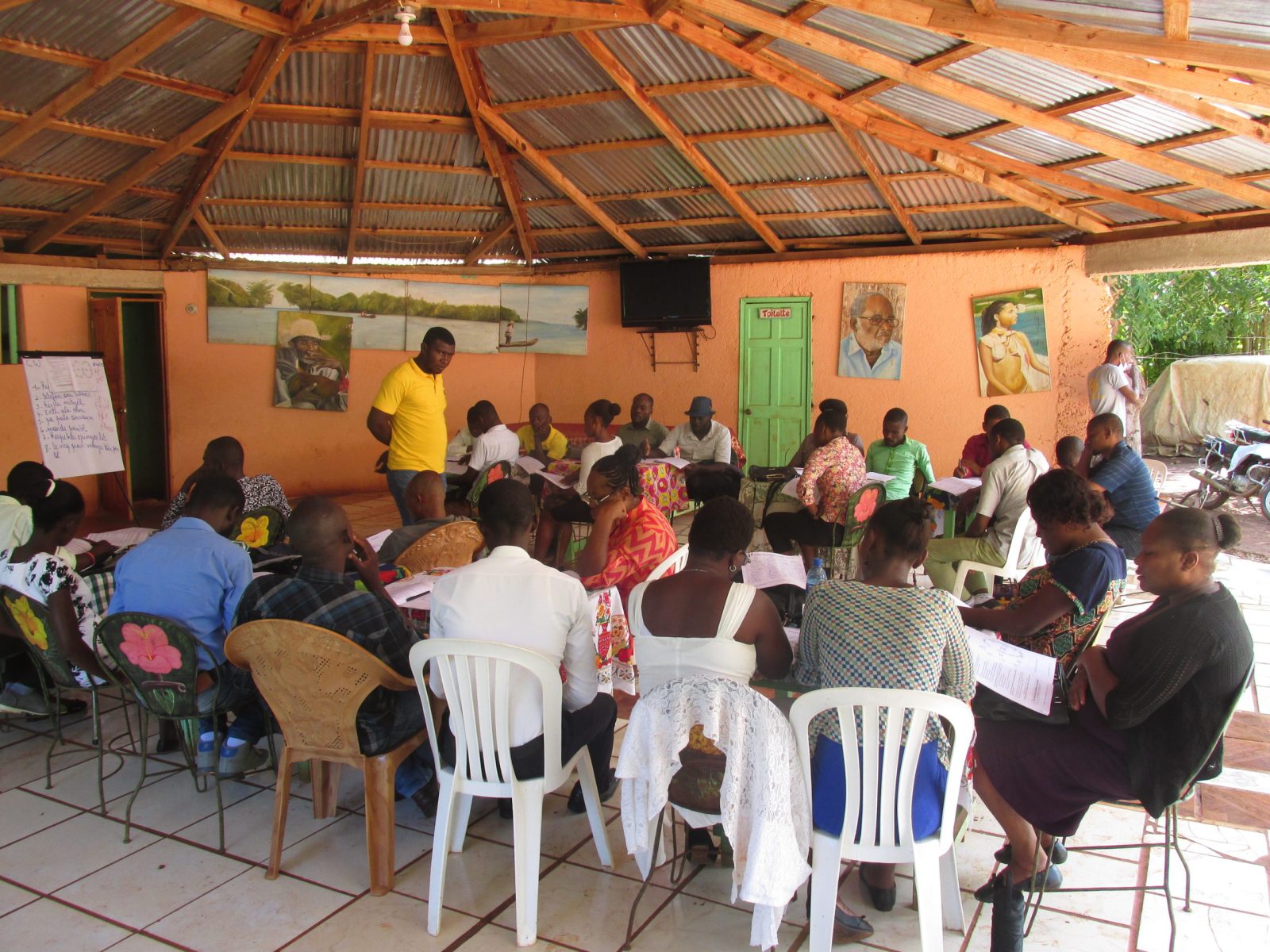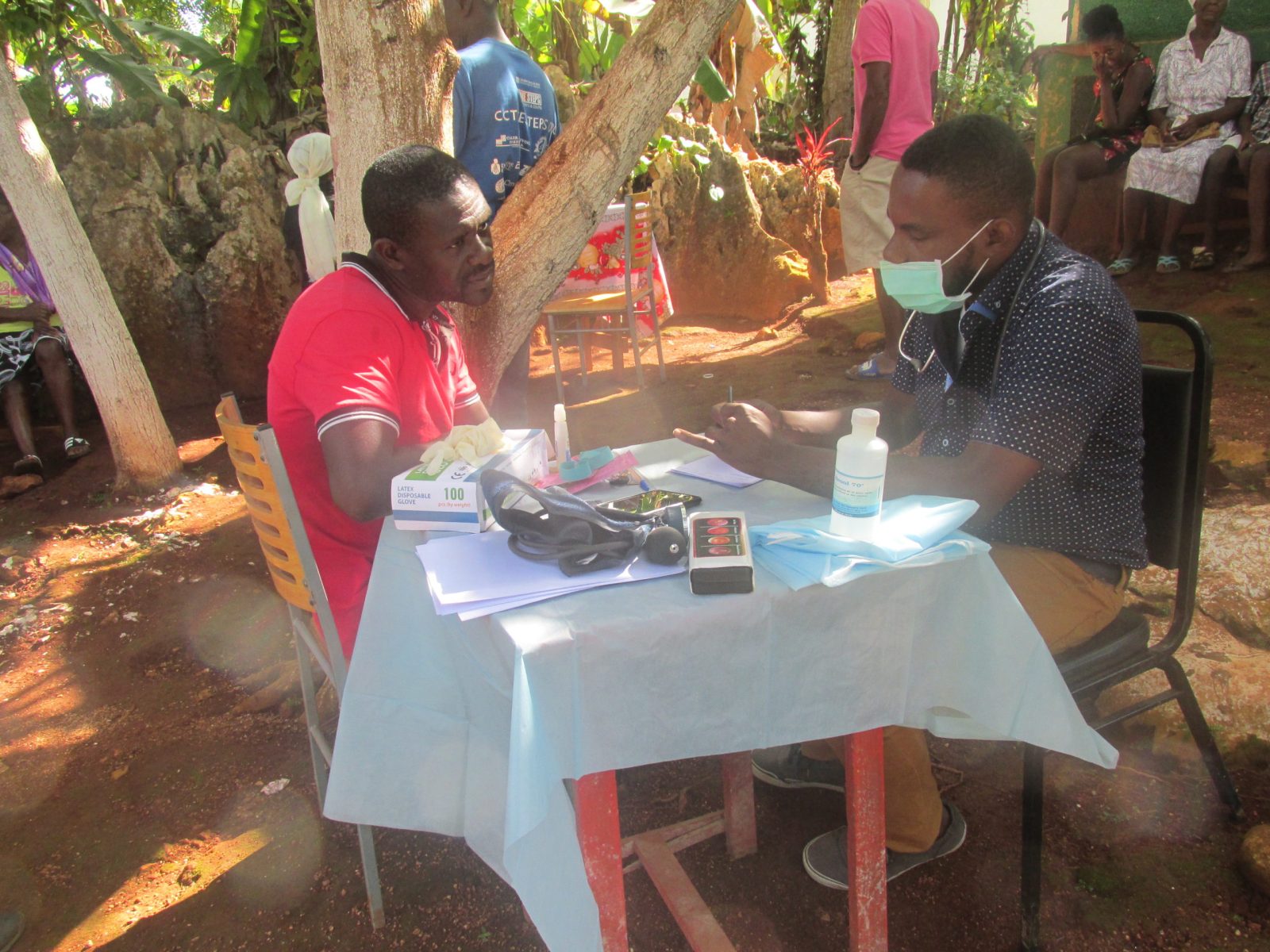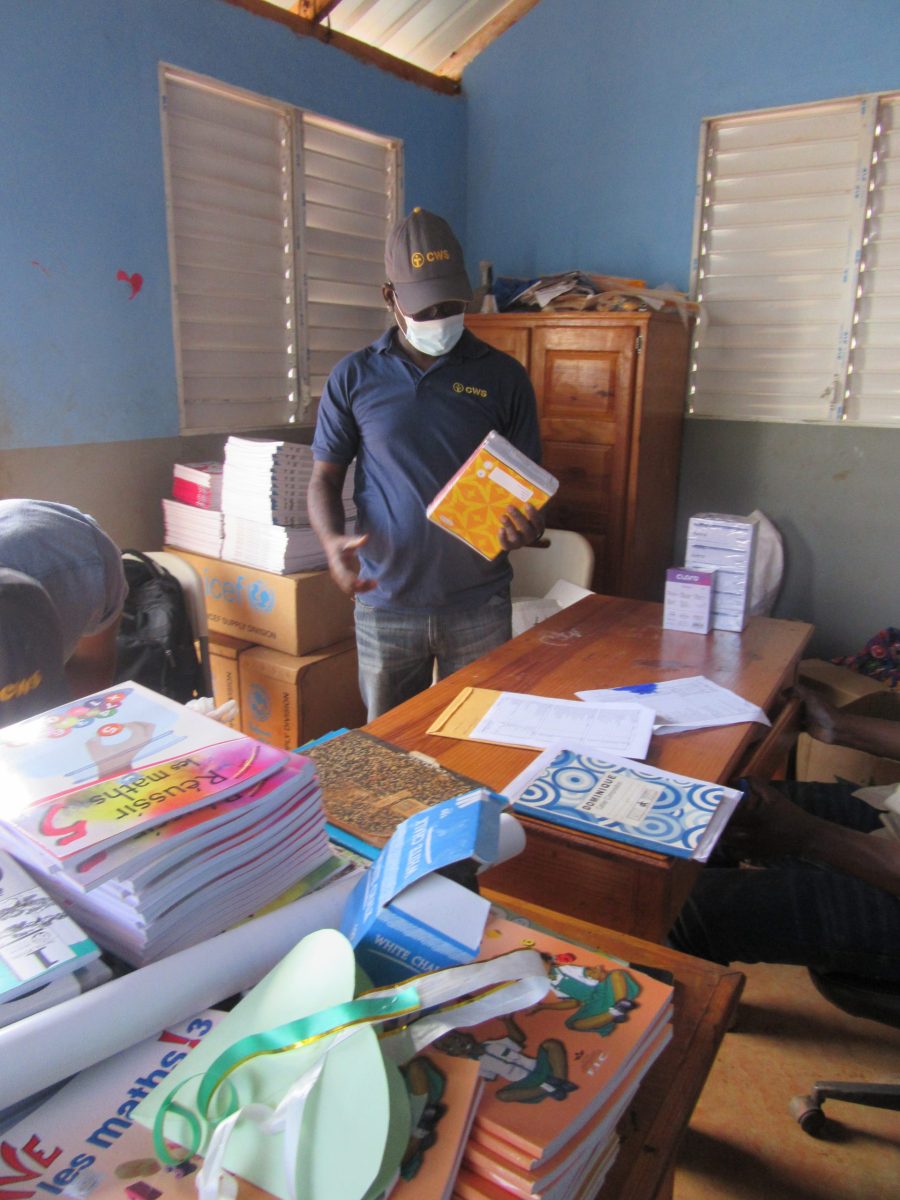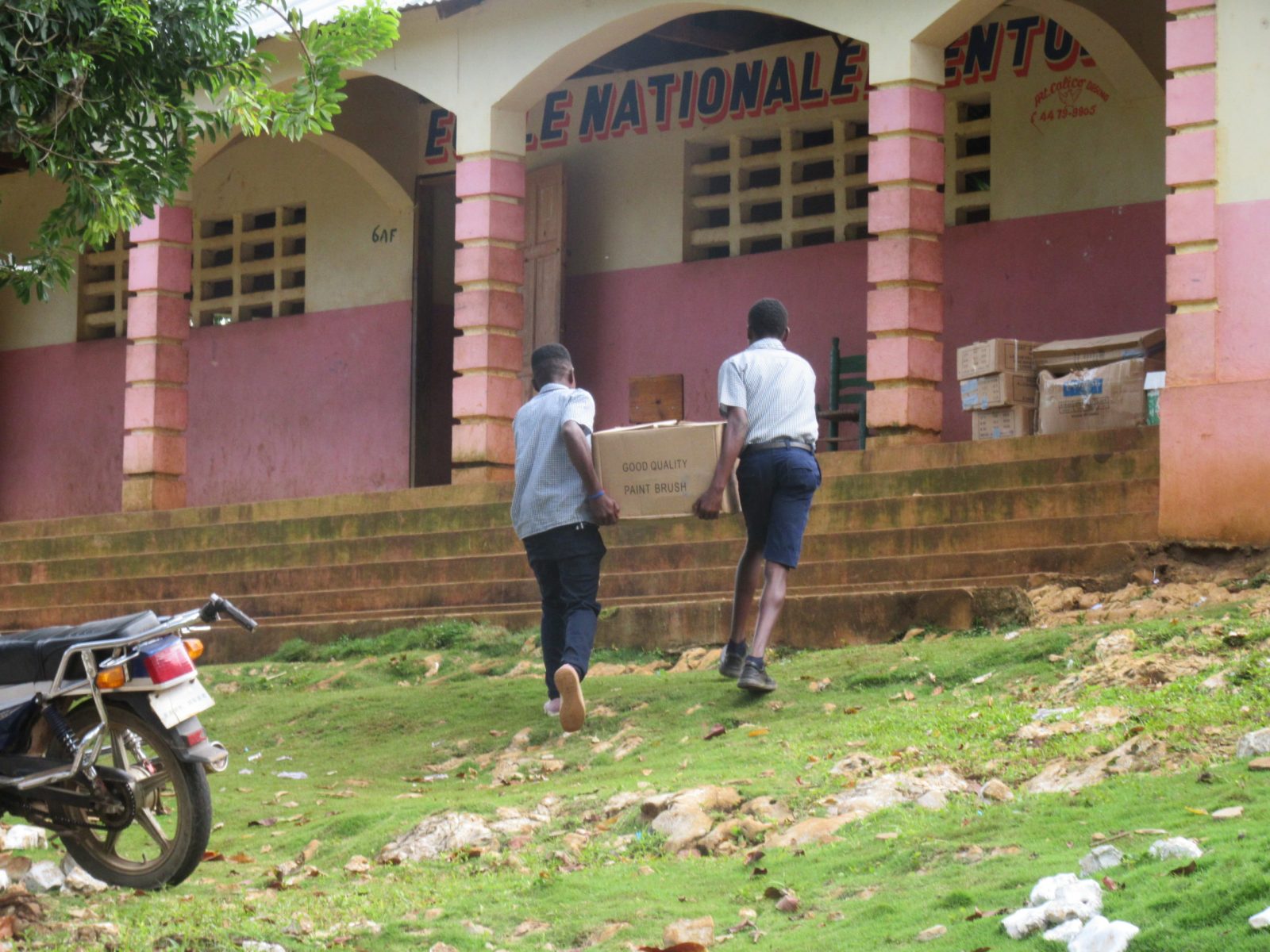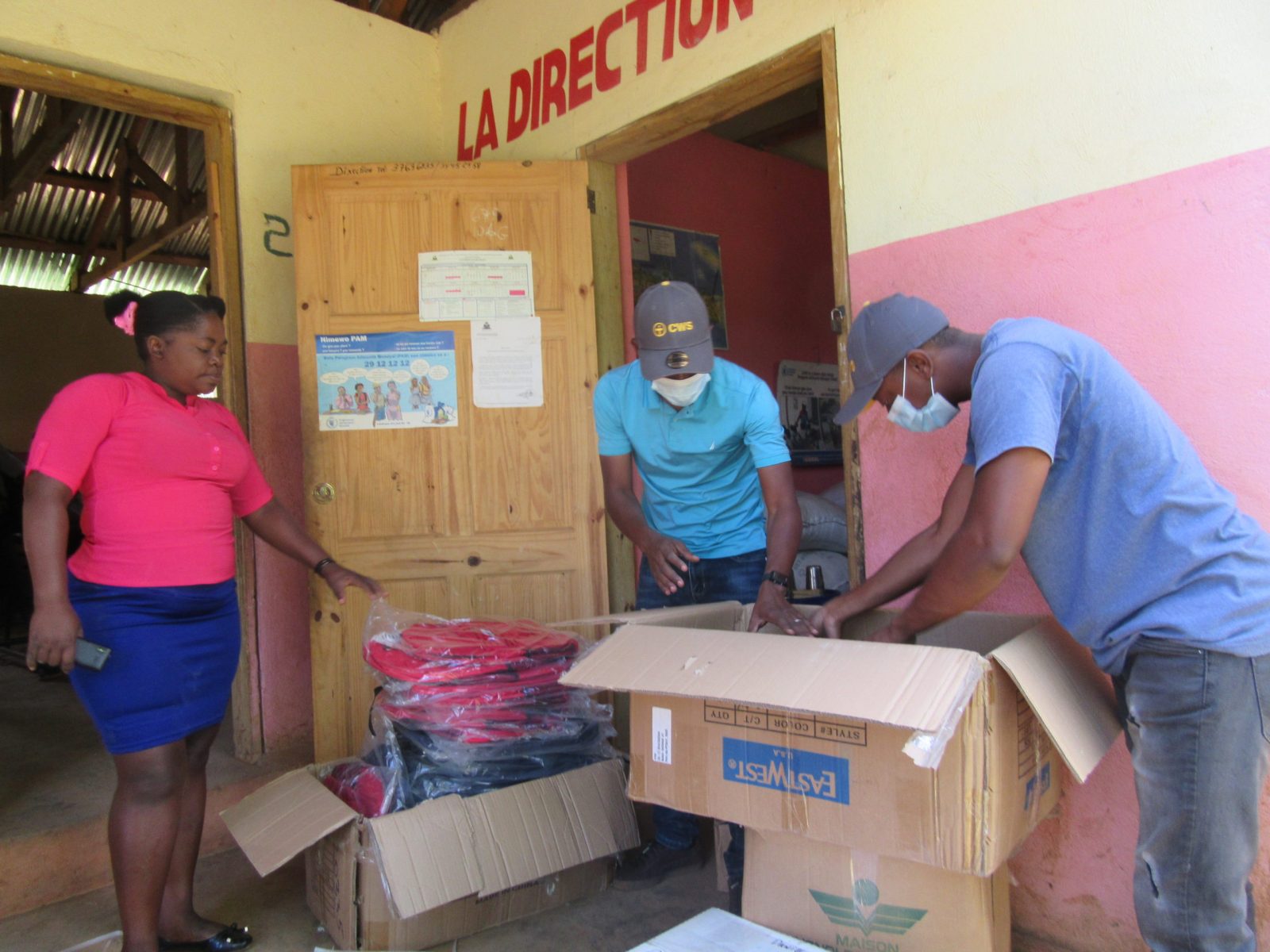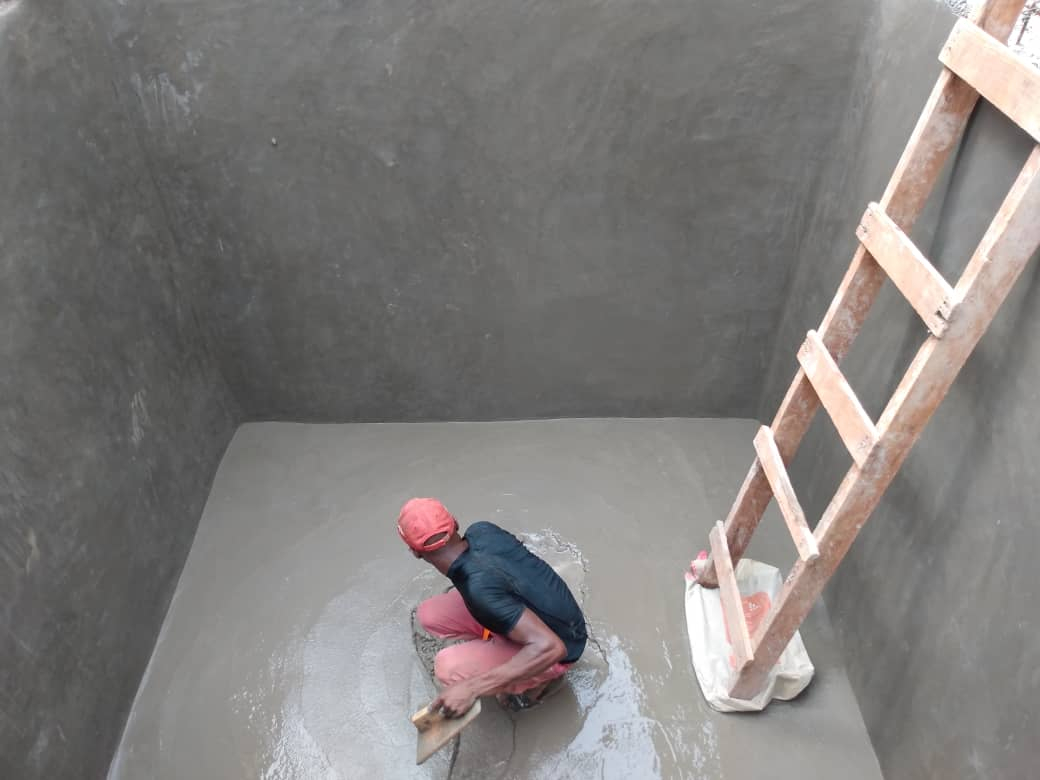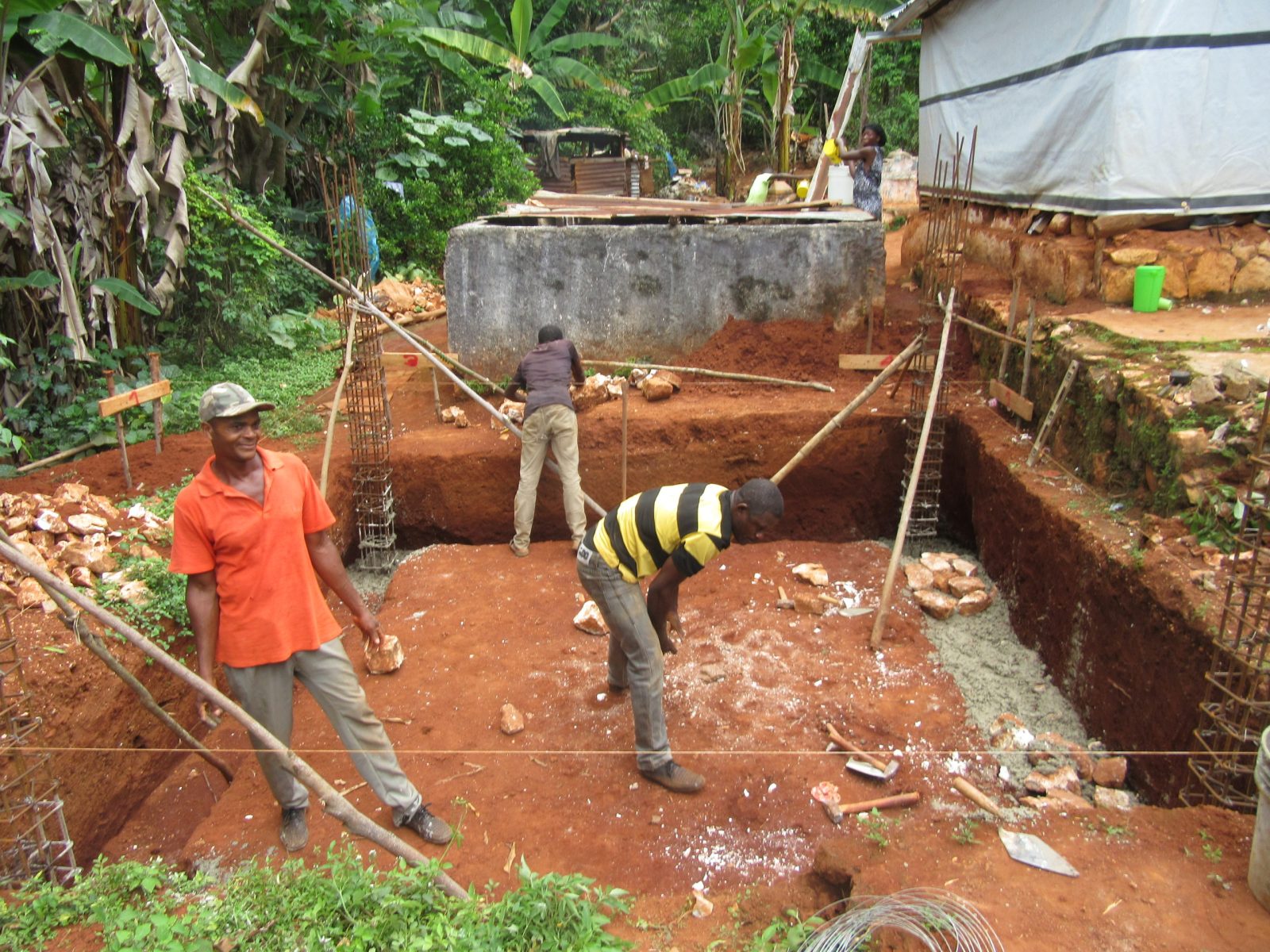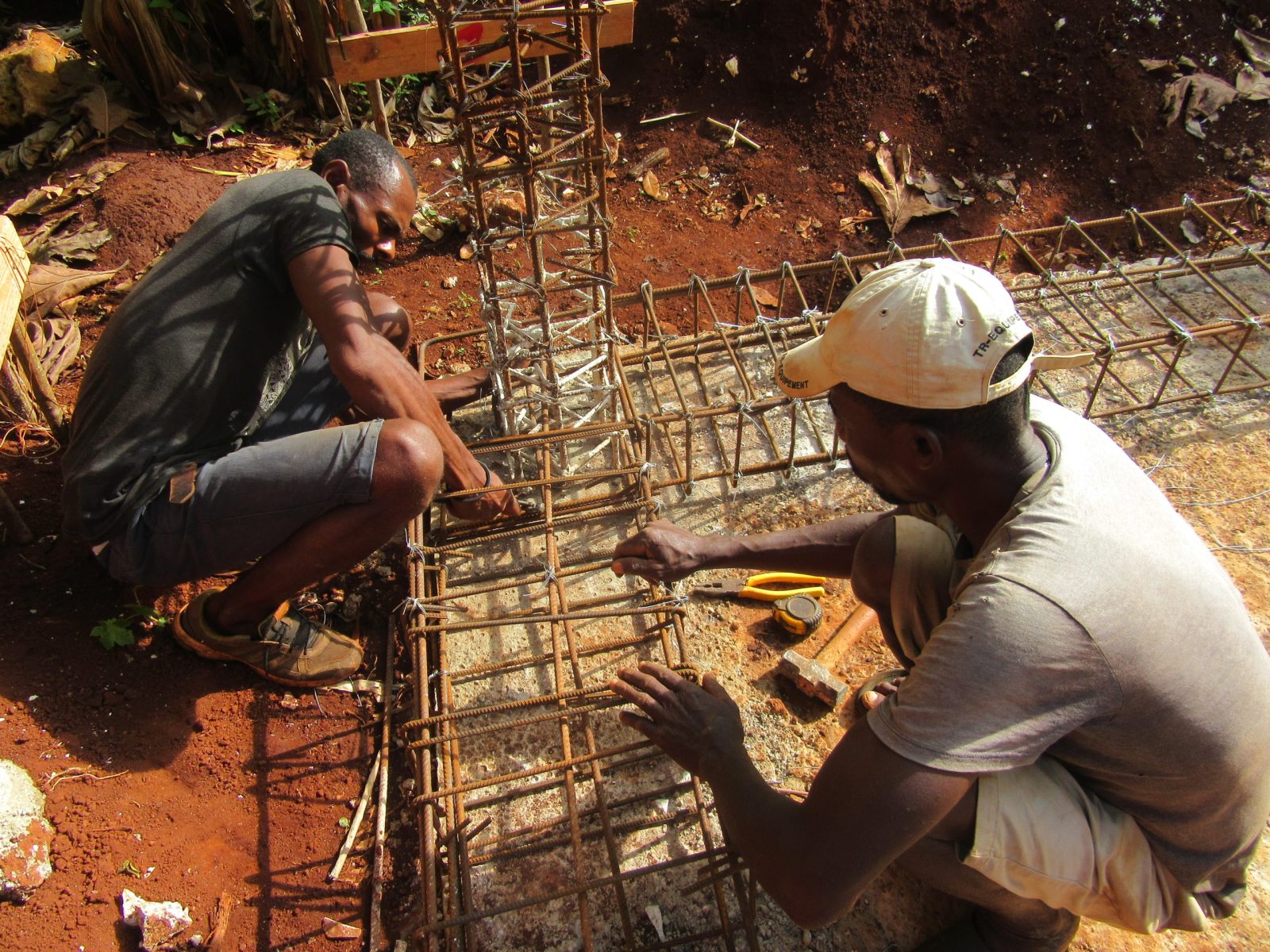In 2021, a 7.2-magnitude earthquake struck Haiti, killing over 2,000 people. The quake added to the existing instability in a country that had already been reeling from political violence and pandemic-exacerbated hunger and poverty. When a disaster of this magnitude affects a region, it not only harms the structure of the community but the heart as well. With this in mind, we have reached out to communities and given them a helping hand as they move through the healing process.
We began our response by examining the most apparent damage: the destruction of homes and buildings. In partnership with local organizations, we identified 15 families (79 individuals) and helped them rebuild their homes. CWS engineers trained local construction workers on the national building code and construction methods of houses and cisterns.
One of the workers, Ovenel Bélizaire, shared, “in the past when building cisterns, I would just have people dig a hole, build rock walls with earth and limestone, and plaster the walls using a little cement and a little sand. But now, thanks to the training and on-site accompaniment by CWS, I am not saying I am the best, but I am a serious worker among the good construction workers.” In this phase of our program, not only are we rebuilding communities, but building them in ways that will be able to withstand any future disasters. (Note: CWS has worked with Haitian communities for more than a decade to help them rebuild homes and schools following disasters. Every home and school that CWS had rebuilt in this part of Haiti in recent years stood strong through last year’s earthquake.)
Below the surface, we are also addressing the psychological damage caused by the disaster. We invited 32 community leaders and 30 teachers to learn about trauma and resilience. One of the participants shared, “while attending this training, what I have already understood so far has changed me. Especially when we talked about mourning and trauma at school. There are a lot of children who used to behave in a way that I thought was not normal, while that is not true. Instead, they require accompaniment.”
The participant added, “what I have learned here will allow me to understand my colleagues, the children at school and my family better. When I see the effect and importance it has in my life and in the life of the community, I realize that the community was living with problems and trauma. If this work continues, a lot of people in the community will also heal. That will be a good start for the development of the country.”
Healing is the key to helping communities thrive. Our response in Haiti will ensure that community leaders are equipped with the tools they need as they lead their communities in the recovery process. One of the teachers told us that “sometimes when there is thunder, the children run away because they think it is an earthquake. The teachers and director comfort them and talk to them to calm their fears. They help them understand that the school was constructed based on earthquake-resistant standards, so they do not need to be afraid.” This school was reconstructed by CWS after Hurricane Matthew in 2016.
One of the 824 students who participated in the psychological support sessions said, “thanks to these activities I can identify my emotions.” Another student expressed, “the earthquake was really difficult for me, even though I was not injured. But now I feel good because these activities truly helped me with what was going on in my mind.”
To ensure kids are able to stay focused on their education, we provided school supplies and books to three public schools. This also gives schools and parents some financial relief. A total of 332 students have received new books and supplies through our program. The construction of a brand new water cistern at an affected school in a remote area is also underway.
In partnership with community leaders, we are actively monitoring the needs of communities in Haiti to continue building resiliency. We are thankful for our many partners and local leaders who have worked closely with us. Together, we can help Haiti heal and build strength to be prepared for any future emergencies.
To learn more, read our Executive Summary Report here.

